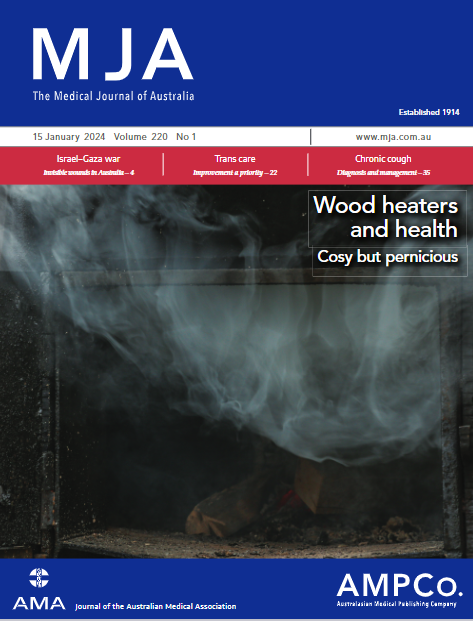Mandatory research projects during medical specialist training in Australia and New Zealand: a survey of trainees’ experiences and reports
Abstract
Objective
To determine how many specialist trainees are required to conduct research projects, how they conduct these studies, and their views on the value of these activities; to assess the design and reporting quality of their research reports.
Study design
Online, anonymous survey.
Setting, participants
Current and recent trainees (past five years) at Australian and New Zealand specialist colleges, recruited through eleven colleges and snowballing; survey was available 31 March – 31 December 2021.
Main outcome measures
Whether trainees were required to conduct research as part of specialty training; how they conducted their projects; the skills mix of the project team and access to relevant expertise and supervision; trainee views on mandatory research during specialty training; research engagement after training. Respondents were invited to submit project reports for reporting and methodological quality evaluation.
Results
A total of 371 people commenced the survey; 361 respondents provided answers about mandatory research projects during specialist training, including 311 (86%) who had been required to complete projects. Seventy-six of 177 people who had completed projects (43%) provided information about 92 projects and submitted 34 project reports for evaluation. Thirty-eight projects (41%) investigated questions developed by the trainees alone; in 48 cases (52%) trainees had planned their projects with little outside input; of the 69 study protocols developed (75% of projects), 60 were developed by the trainees. The median proportion of time devoted to the research project exceeded 50% for trainees in ten of twelve colleges. Respondents typically worked in non-collaborative teams, restricted to members of their own specialty, and additional expertise was limited to statisticians, allied health professionals, and nurses. Eighty-seven of 174 participants who had completed projects (50%) felt that doing so was very or moderately important for their clinical careers; 36 of 67 respondents (54%) supported the requirement for scholarly projects during specialty training; 33 of 61 respondents (54%) had participated in research after completing training, and 44 (72%) had considered doing so. Twenty-five of 34 available reports had been published; in 27 assessable reports, methods and results reporting was generally poor, and the risk of bias moderate to high in all but three. Participants criticised using their own time for projects and their potentially low quality results.
Conclusion
For trainees who undertake specialty training, the time commitment and poor quality research associated with mandatory research projects were frequently concerns. Medical colleges should focus on research training tailored to individual career aspirations and training needs.


 求助内容:
求助内容: 应助结果提醒方式:
应助结果提醒方式:


